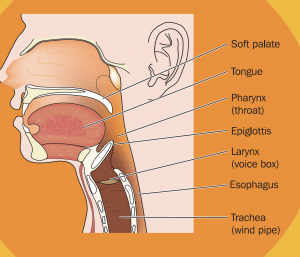
Author: Layal Bou Abdo MNS
Illustration: Angeline Boswell
Everybody yawns, even unborn babies in the mom’s womb. Almost all the vertebrates (animals that have a backbone or a spine inside their body) yawn.
You do it! We all do it! Especially when we are bored in class. We indeed yawn a lot when we are tired, warm or bored, and sometimes we yawn just because we see other people yawning.
Scientists are not so sure why do we yawn but they have linked yawning to sleepiness or lack of oxygen (which could cause sleepiness).
 When do we yawn?
When do we yawn?
Scientists have found that our brain is warmer when we are tired or just before we are going to sleep. Your brain heats up as it uses 40% of your body’s metabolic energy just like a laptop that heats up after playing many hours of video games. Your brain also is warm when you are feeling warm, that’s why you yawn when it’s hot outside or after a workout. When you need to focus on something like a math exercise or reading a book, you sometimes yawn, that’s because it is the mechanism of the brain to stay focus. You think more clearly with a cooler brain. Just like the fan in your computer, the brain needs a fan to cool him off to function well and processing the information properly. Scientists have suspected that yawning cools down your brain.
How does yawning cool the brain down?
When you yawn, you open your mouth wide and take a very big breath, as you breathe in, you take cool fresh air. When you start to yawn, powerful stretching of the jaw increases blood flow in the neck, face, and skull. Each yawn pumps air into the upper respiratory system in the upper and lower nasal cavities and the sinuses which have mucus membranes covered with many blood vessels that project to the brain making you more alert. This process is like the radiator of a car, or as your brain natural air conditioning system, removing hot blood from the brain while bringing in cooler blood from the air and lungs.
Here is a great article explaining the inside of the nose anatomy with 3 Dimensions cool pictures.
Why does the fetus yawn?
The fetus does not breathe using his lungs inside the womb. The lungs open up when the baby is born with the first cry. The fetus starts to yawn at the age of 12 weeks of pregnancy. Yawning inside the womb distributes the surfactant or the biochemical that coats the teeny tiny air pockets (alveoli) inside the lungs. This helps to keep them open and ready to exchange carbon dioxide with oxygen. So yawning in fetuses may help to prepare them for life outside the womb.
 Is yawning contagious?
Is yawning contagious?
Have you ever noticed that you yawn when you see another person yawning?
Of course, you can catch a yawn from someone else, even reading about it can make you yawn. Go ahead, just do it, get it out!
Studies have shown that people who see other people yawning, even in videos, are more likely to yawn.
If you are younger than 5 years old, you might not catch contagious yawning at all, though you still definitely yawn. That leads researchers to conclude that yawning is another way people use to communicate with each other and reinforce social bonding. It’s an involuntary way to tell others that we understand and feel what they are feeling. It’s like you smile when you see someone else smiling. Brain imaging studies have shown that when humans watch other people yawn, brain areas known to be involved in social function are activated.
Why do I cry when I yawn?
When you yawn, the muscles of your face surrounding your eyes pull tight. This will squeeze the glands (lacrimal glands) that produce tears causing them to release a small number of tears.
So next time you let a big yawn, pay attention to those muscles around the eyes to feel them tighten and take note if you get a little teary-eyed.
Experiment time
We ask you to watch this video, and count how many times did you yawn?
Now watch it again when you hold an ice pack, count! Did you yawn less?
In an experiment done with 2 groups of people holding hot and cold pads to their head, to study if the change in temperature in the brain triggered yawning, scientists found that the people who have applied hot pads have yawned 41% of the time while the cold-headed participant yawned only 9% of the time.
Fun Facts! Did You Know?
Yawning is contagious for other animals besides humans, like for example the chimpanzee.
Dogs catch yawns from watching people.
People with emotional problems do not catch a contagious yawn.
Oscitation is the fancy medical word to represent the fact of yawning.
In the below video, practice making a yawning paper plate (and learn about angles!)
We are certain your kid asks you health (human & animal) questions that genuinely leave you stumped! Leave a comment below and we are happy to answer “why” in future blogs.
Copyright © 2020 Little Medical School Ottawa


[…] swallow a bit of air into your stomach every time you eat, drink, talk, chew gum, or yawn. When your belly stretches to its maximum capacity, it releases the air back up your esophagus and […]
thank you for the article